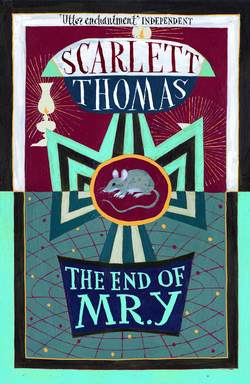Читать книгу The End Of Mr. Y - Scarlett Thomas - Страница 14
На сайте Литреса книга снята с продажи.
ОглавлениеPART TWO
The matters of which man is cognisant escape the senses in gradation. We have, for example, a metal, a piece of wood, a drop of water, the atmosphere, a gas, caloric, electricity, the luminiferous ether. Now, we call all these things matter, and embrace all matter in one general definition; but in spite of this, there can be no two ideas more essentially distinct than that which we attach to a metal, and that which we attach to the luminiferous ether. When we reach the latter, we feel an almost irresistible inclination to class it with spirit, or with nihility. The only consideration which restrains us is our conception of its atomic constitution; and here, even, we have to seek aid from our notion of an atom, as something possessing in infinite minuteness, solidity, palpability, weight. Destroy the idea of the atomic constitution and we should no longer be able to regard the ether as an entity, or, at least, as matter. For want of a better word we might term it spirit. Take, now, a step beyond the luminiferous ether – conceive a matter as much more rare than the ether, as this ether is more rare than the metal, and we arrive at once (in spite of all the school dogmas) at a unique mass – an unparticled matter. For although we may admit infinite littleness in the atoms themselves, the infinitude of littleness in the spaces between them is an absurdity.
Edgar Allan Poe, The Mesmeric Revelation
As material things prove all to be connected and parts of one thing; as the pebble at our feet and the most remote and profitless fixed star are still united, so ‘Does it rain, my dear?’ and the most dreary metaphysical inquiry are still closely connected.
Samuel Butler, Note-books
